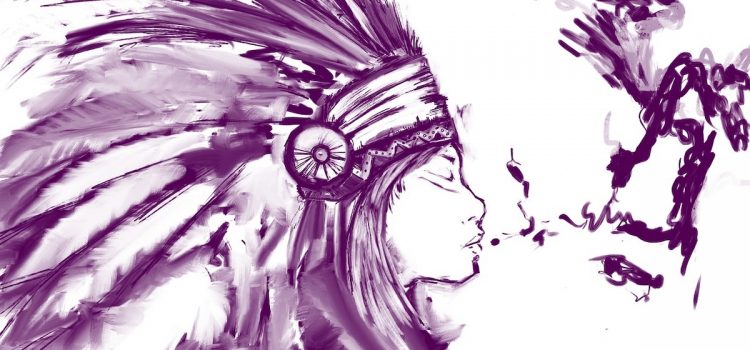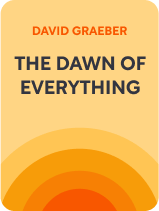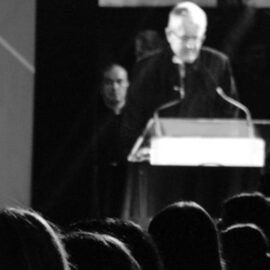

This article is an excerpt from the Shortform book guide to "The Dawn of Everything" by David Graeber. Shortform has the world's best summaries and analyses of books you should be reading.
Like this article? Sign up for a free trial here.
What’s the indigenous critique? What started the Enlightenment? Is the traditional narrative accurate?
European Enlightenment philosophy was inspired by the native North American people’s critique of European customs. That’s the view of David Graeber and David Wengrow, as presented in their book The Dawn of Everything.
Continue reading to learn about this fascinating alternative view of history.
The Indigenous Critique: What Started the Enlightenment?
In the late 1600s, European colonists in North America became engaged in philosophical discussions with the indigenous peoples of that land. Some of the indigenous people and the colonists learned to speak one another’s languages fluently. Graeber and Wengrow explain that the native North Americans had strong philosophical traditions and skilled orators who challenged European colonial officials in debates.
What started the Enlightenment? In New France, Wendat leader Kandiaronk raised scathing critiques of European social customs and values, particularly criticizing monarchical rule, social hierarchies, emphasis on the accumulation of wealth and materialism, and punitive justice systems. These descriptions then made their way back to Europe, where they were widely distributed among the intellectual class and, Graeber and Wengrow argue, became the inspiration for much Enlightenment thought.
Notions of Freedom and Equality
One of the major cultural differences the Europeans and indigenous people found they had was the notion of equality and its connection to freedom. Indigenous ideas about equality and freedom directly conflicted with the European notions of social status and a natural hierarchy.
Graeber and Wengrow say that Europe before the 1700s lacked a notion of social equality. They believed that some people are naturally higher or lower in status and authority than others. They lived in monarchies and they derived that system from biblical notions of nobility and authority. In other words, God decided one’s station in life.
By contrast, many of the Native American cultures had no notion that anyone could be born higher or lower in status than anyone else or that anyone could have authority over anyone else. In such cultures, status might be gained with age or according to merit. But the notion that people are inherently unequal or that any status could give someone the right to dominate someone else would not have existed in this kind of cultural worldview.
| The Role of Religion in Upholding the Social Order Historically, we can see a connection between types of religion and types of social organization. In his book Sapiens, Noah Yuval Harari argues that agriculture and organized religion evolved alongside one another. He argues that the role of religion is essentially to give “superhuman legitimacy” to the established social order, making it hard to challenge, and therefore more stable. He compares the animistic belief systems of most indigenous peoples with the polytheistic and monotheistic belief systems often associated with agricultural states. Since an animistic belief system views humans as simply one part of a natural order that includes everything living, equality is an inherent part of the worldview. In this worldview, everything in nature is considered to be imbued with spirit, and to be valued and honored. Therefore the human world is constructed similarly. In a polytheistic belief system, there are multiple gods that are often ranked, with some being higher than others. Although Harari says this form of religion tends to be more tolerant and inclusive than a monotheistic one, it still supports a hierarchical worldview. A monotheistic religion, he argues, can create a rationale for domination and intolerance, since it’s based on a belief that only one god exists, and therefore any other belief form must necessarily be wrong. With such a belief system in place, a doctrine such as the Divine Right of Kings can be justified. This doctrine, which arose in medieval Europe, asserts that a king derives his absolute power from the one absolute universal power, God. |
According to Graeber and Wengrow, people in societies that we would call egalitarian (meaning everyone is equal) actually seem to be less concerned with equality than they are with autonomy, meaning an individual’s right to self-govern. Each person having autonomy over him or herself is the most important value in these cultures. And while this means nobody can rightfully dominate anyone else, which in turn creates a relatively egalitarian society, individual liberty is prioritized over actual equality.
Graeber and Wengrow identify three forms of freedom that are commonly at the foundation of an egalitarian cultural value system:
- The freedom to move away: One should be free to leave at any time and know there’s somewhere else they can go and be welcomed.
- The freedom to disobey: One should be free to disobey orders without repercussion.
- The freedom to build new social worlds: If what exists isn’t working, there should always be freedom to imagine new possibilities and implement them.
The authors ask us to consider how these notions of freedom align with our worldview in modern society. They point out that, even though much of our thinking has been influenced by these ideals, and we are much closer to them than were 17th-century Europeans, we still don’t fully embrace all of these freedoms. For example, most of us can’t even imagine a society in which disobedience of the law has no consequences. We tend to have paradoxical ideas about freedom, wherein we all want our personal freedoms but we believe authority, embedded in the government, is absolutely necessary.
| Conflicting Ideas of Freedom We can see the difference in ideas about what freedom entails by looking at contemporary American politics. One of the defining distinctions between right- and left-wing politics is the differing concepts of freedom. Conservatives tend to place a high value on individual liberties—the unhindered right to enjoy their own private lives and property. In this view, government regulation of private lives and economic pursuits should be kept to a minimum, but laws that protect individuals’ rights and property must be strictly enforced. For example, in the conservative view, the government should not put restrictions on an individual’s right to profit from their business. Liberals also value individual liberties but believe that must come with the responsibility to not encroach on others’ freedoms. This means the government must sometimes regulate issues of freedom to ensure one person’s liberty isn’t infringing on another’s. For example, in the liberal view, the government should mandate minimum wages and other fair labor laws to prevent employers from exploitative practices that violate their employees’ rights. In both worldviews, we can see that these concepts of freedom fall short of the egalitarian model. Neither of these ideologies would embrace the idea that nobody can be subject to the authority of another. |
Enlightenment Values
Even though we in modern state societies don’t fully embrace the freedoms of an egalitarian society (for example, we believe authority and law enforcement are necessary), Graeber and Wengrow point out that the values of contemporary American and European cultures are more aligned with the values of indigenous Americans in the 1700s than with European culture from that time. They argue that this is because the “indigenous critique” by Kandiaronk and others like him had a profound influence on European Enlightenment thought.
| What Is the Enlightenment? The Age of Enlightenment refers to a historical period, largely throughout the 1700s, when European intellectuals and philosophers were concerned with rethinking social values and moving toward a more progressive vision for humanity. This included thinking about the most rational ways to go about organizing and governing society to maximize human well-being, including discussions of freedom, equality, and empirical truth. As this was a period of European expansion, Enlightenment thinkers took inspiration for their ideas from around the world. Since the conversations with (and descriptions of) the indigenous peoples in North America were published and widely circulated in the early 1700s, it’s clear those were among the influences. Enlightenment philosophy led to revolutionizing many aspects of European society and ultimately had global influence. Some of the most well-known thinkers associated with this movement are René Descartes, Jean-Jacques Rousseau, Immanuel Kant, John Locke, and David Hume. |
The major theme tying all Enlightenment thinking together is reason. Graeber and Wengrow explain that, because the Wendat and other tribes didn’t believe anybody had the right to control anyone else, they placed a high emphasis on reason. They considered rational, intelligent argumentation to be fundamentally important because, in those indigenous value systems, the only way one could legitimately compel others was through persuasion.
So the authors argue that indigenous ideas about reason, individual liberty, and equality clearly had an impact on the thinking of Enlightenment philosophers, as these were concepts that were almost entirely absent from the European cultural worldview at the time. In fact, these conversations naturally stirred up conflict with the conservative monarchic governments and the Church in Europe, as they challenged religious knowledge and authority as well as social hierarchies.
(Shortform note: In his book Enlightenment Now, Steven Pinker argues that organized religion is fundamentally opposed to Enlightenment values because religious dogma often advocates putting the higher good above human interest—for example, embracing suffering in this life in order to appease a god and attain happiness in an afterlife. Also, Pinker says that organized religion typically translates to power imbalances and curtailing of freedoms, which conflict with the Enlightenment emphasis on equality and freedom.)
The Undermining of the Indigenous Critique
Graeber and Wengrow argue that the oversimplified view of indigenous societies was deliberately used to undermine the indigenous critique of European culture by equating “egalitarian” with “primitive.”
The authors explain that the reasoning went like this: If “primitive” tribes were egalitarian (as they were all presumed to be) then one could logically conclude that an egalitarian structure was primitive and associated with a simple-minded worldview. Then, by contrast, since “civilized” societies were all hierarchical, that structure must be associated with a more sophisticated worldview. Then, when we add notions of social evolution to the narrative, Graeber and Wengrow point out, it’s easy to conclude that an egalitarian structure is less evolved and that as human societies progress, they naturally and rightfully become more stratified.
So, this rationale worked to undermine the indigenous critique by discrediting the source: If indigenous societies were primitive and simple-minded, they obviously couldn’t have any valid critique of a civilized, sophisticated society. They just didn’t understand the complexities of civilization.

———End of Preview———
Like what you just read? Read the rest of the world's best book summary and analysis of David Graeber's "The Dawn of Everything" at Shortform.
Here's what you'll find in our full The Dawn of Everything summary:
- How our beliefs about the evolution of human societies have been wrong all along
- An exploration of different notions of freedom and equality
- Thought-provoking questions about the inevitability of inequality






